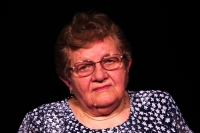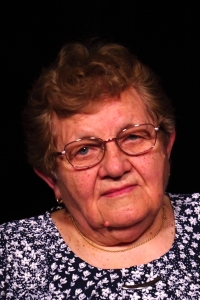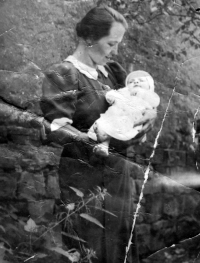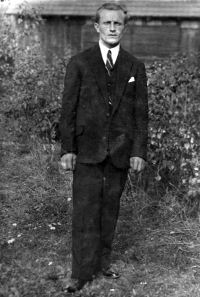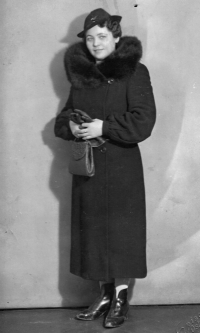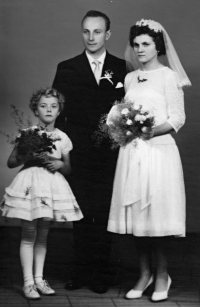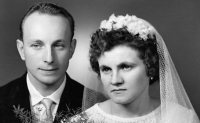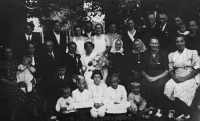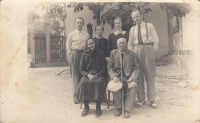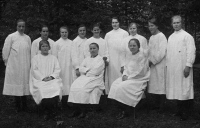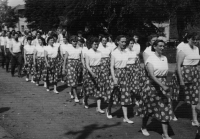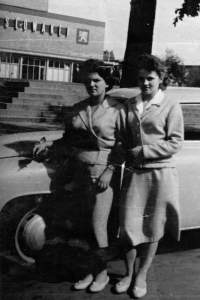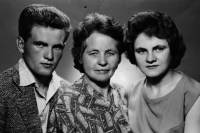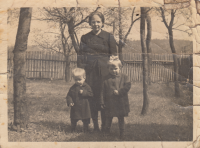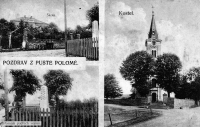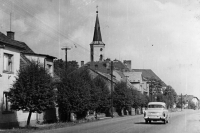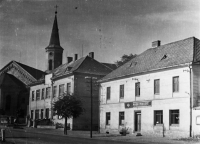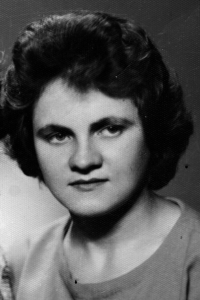Hard times taught me that one should be content with what they have

Download image
Marie Vašková, née Eichlerová, was born on May 13, 1941 in Hrabyně in the Opava region. Her father Jan Eichler was a private carpenter and joiner. When she was less than two years old, he cut off his fingers at work, got tetanus, contracted typhoid fever in the hospital, and died. Before the arrival of the front in the spring of 1945, she went with her mother and younger brother to stay with relatives in the neighboring Pusta Polom. There she experienced the arrival of the Red Army. Their house in Hrabyně was destroyed during the liberation struggles. After the war, the mother built a new house, and made a living on a small farm. Marie was in contact with the family of the first-republic politician and economist Karel Engliš, who had been in forced exile in Hrabyně since the 1950s. At the age of fifteen, she left to work as at the Tepna textile factory in Náchod. After three years, she returned to Hrabyně and began working at Klement Gottwald’s New Ironworks in Ostrava. After her marriage, she moved to Šenov u Havířova, where she worked at the post office until her retirement.
